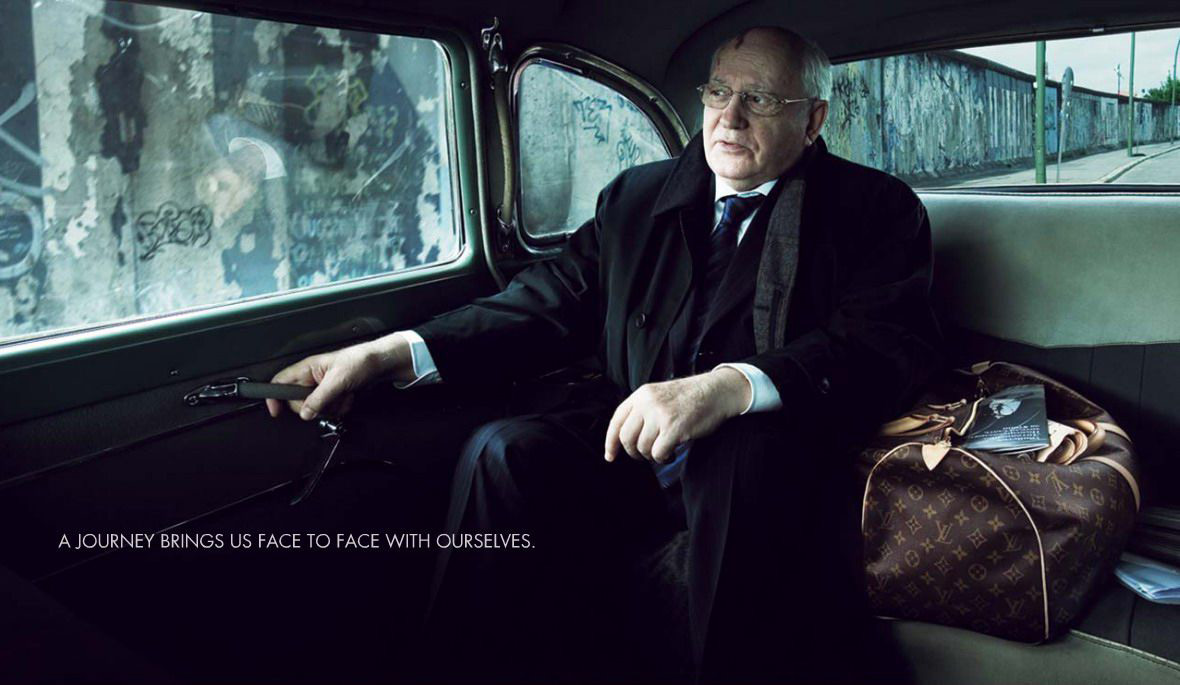Mikhail Gorbachev is speaking out on the Russian “election”, advocating for a transition from the Putin era to a new, more democratic era. Gorbachev, in speaking to Moscow students earlier, called out the upcoming election for what it is — a sham affair with only window-dressing opposition. Gorbachev predicted a Putin win, but implored for a transition to democracy from a regime that is “exhausted.”![]()
It’s always stunned me just how very unpopular Gorbachev is in Russia. Certainly, the hard-liners cannot forgive him for his role in the dissolution of the Soviet Empire; the Russian high guard went from Cold War players astride the global stage to afterthoughts of a broken country. Certainly, the liberals in Russia had nothing for disdain for Gorbachev in 1990, when his glasnost and perestroika seemed like glacial progress in the face of the democratic reforms championed by (the once-energetic, if you can believe it) Boris Yeltsin.
He was despised by the communists, who regarded him as no better than the CIA; despised by the “great power” nationalists, who believed he was responsible for the humiliation of a great power and its army; and despised as well by liberal democrats, who felt he had never fully shed his allegiance to the nomenklatura that raised him.
In the fullness of time, you might think that the Russians would forgive Gorbachev his transgressions and recognize his role in hastening the end of the Cold War, just 20 years after the Cuban Missile Crisis, and for acknowledging that the Iron Curtain was simply unsustainable — for the Soviet Union and for Eastern Europe (even if the realization came too late to save the former).
Nevertheless, if anything, he remains as reviled today as ever.
Gorbachev ran for president in 1996 and received 0.5% of the vote, such was his unpopularity. But even when he made pro-Putin and anti-Bush statements in the middle of the last decade, there’s no evidence that he remains anything other than a pariah in contemporary Russian political discourse. The parts somehow add up to less than even the shadow of the Gorbachev of whom we all think of in the “West.”
Ultimately, I have to believe a strong component of that is the way that the “West” adores Gorbachev, and the way in which Gorbachev himself has essentially become a “Westerner” in the past 20 years, as evidenced by his now-infamous ad (shown at the top of this post) for Louis Vuitton and by the slick Hollywood 80th birthday party hosted for Gorbachev in London last year.
If — and it’s a big if — the growing pro-democracy protests and continued disenchantment with Putin lead to a new regime, it may well be his last chance at rehabilitation in Russia (even if the West continues to adore him), but I think far more likely that a vocal Gorbachev can only cause headaches for Putin’s opposition.
Meanwhile, the fake debates continue with less than a month until voting begins — the second one featuring the ultranationalist Vladimir Zhirinovsky and a stand-in for Putin.


One thought on “Glasnost ghost”